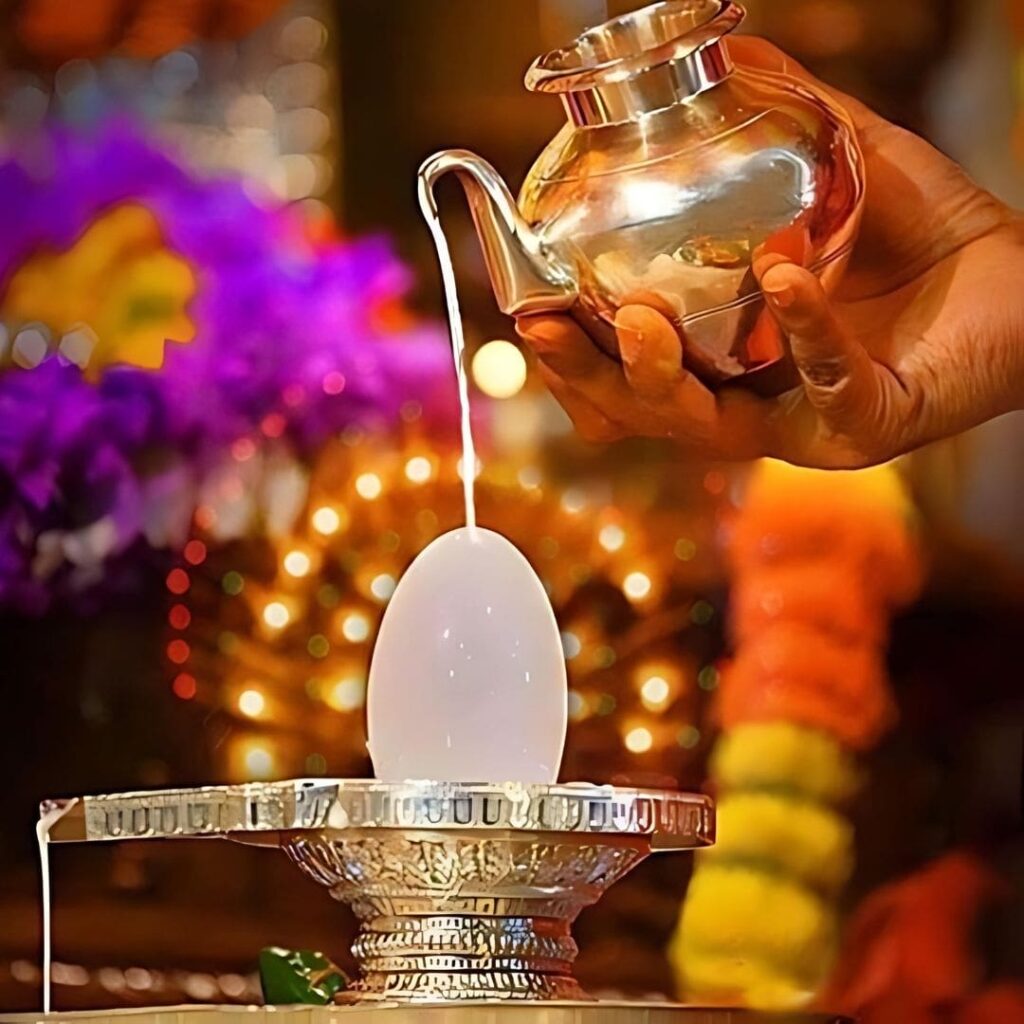
What is Shravan (Sawan)?
Shravan, also known as Sawan, is the fifth month of the Hindu lunar calendar, typically falling between July and August. This month is considered highly auspicious and is dedicated to Lord Shiva, one of the principal deities in Hinduism. Devotees observe various rituals and fasts during this period, seeking the blessings of Lord Shiva for prosperity, health, and spiritual growth. Shravan is also marked by several significant festivals and auspicious days, including Nag Panchami, Raksha Bandhan, and Janmashtami, making it a spiritually enriching time.
Significance of Sharavan
The story :
The significance of the month of Savan can be traced back to various Hindu legends and scriptures. One popular story is from the Samudra Manthan (churning of the ocean), where the gods (Devas) and demons (Asuras) churned the ocean to obtain the nectar of immortality (Amrit). During this churning, a deadly poison known as Halahala emerged, which threatened to destroy the universe. To save the world, Lord Shiva consumed the poison, which turned his throat blue, earning him the name Neelkanth (the blue-throated one). It is believed that the gods and devotees offered water from the holy river Ganges to cool Lord Shiva’s throat. Hence, during Shravan, devotees perform Abhishekam (ritualistic bathing) of Shiva Lingams with water and milk to appease and seek blessings from Lord Shiva.
Importance:
This is considered one of the holiest months in the Hindu calendar. It holds immense spiritual significance as it is believed that during this period, the divine vibrations in the environment are heightened. Devotees believe that observing fasts and performing rituals during Shravan can help in purifying the soul, removing past sins, and bringing divine blessings. Mondays of Shravan, known as Shravan Somvars, are particularly significant for Lord Shiva devotees. Many people observe fasts and visit Shiva temples, offering milk, bilva leaves, and other sacred items to the deity. This month also emphasizes the importance of self-discipline, devotion, and a spiritual way of living.
The celebration:
Celebrations of Shravan vary across different regions in India but commonly include fasting, prayer, and ritualistic offerings to Lord Shiva. Devotees visit Shiva temples and participate in special Pujas (worship ceremonies). Abhishekam, the ritualistic bathing of the Shiva Lingam with water, milk, honey, curd, ghee, sugar (Panchamrit) is a prominent practice. In many regions, Kanwar Yatra is undertaken by devotees, where they collect holy water from rivers and carry it to Shiva temples. Shravan Mondays (Shravan Somvars) see heightened activity, with many devotees observing strict fasts and spending the day in prayer and meditation. Additionally, festivals like Nag Panchami, Raksha Bandhan, and Janmashtami are celebrated with great enthusiasm during this month.

Shravan 2024 Dates & Muhurats:
This year in 2024, the month of Shravan begins on July 21st and ends on August 19th. This period is marked by various auspicious days and festivals dedicated to Lord Shiva and other deities.
The 5 Shravan Somvaars will be on the following dates:
- 22nd July, 2024
- 29th July, 2024
- 5th August, 2024
- 12th August,2024
- 19th August, 2024
Shubh Muhurats in Shravan 2024:
- 22nd July, 2024 – First Shravan Somvaar
- 2nd August,2024– Shravan Shivratri
- 7th August, 2024– Hariyali Teej
- 9th August,2024– Naag Panchami
- 19th August,2024– Rakshabandhan
Shravan Pooja Vidhi and Rituals
Performing Pooja during Shravan involves several steps and rituals to ensure that the devotee receives the maximum spiritual benefits. The typical Shravan Pooja Vidhi includes:
- Purification: Begin with a thorough cleansing of the body and the Puja area.
- Setting up the Altar: Arrange the idols or pictures of Lord Shiva, along with other deities, on a clean altar. Decorate the altar with flowers, lamps, and incense.
- Offering Water: Perform Abhishekam of the Shiva Lingam with water, milk, curd, honey, and ghee, chanting sacred mantras.
- Offering Bilva Leaves: Offer fresh Bilva leaves to the Shiva Lingam, as they are considered highly sacred and dear to Lord Shiva.
- Chanting Mantras: Recite Shiva mantras like “Om Namah Shivaya” and other hymns dedicated to Lord Shiva.
- Fasting: Many devotees observe fasts on Mondays and other auspicious days, consuming only fruits and milk.
- Aarti: Conclude the Puja with the Aarti, waving a lit lamp in front of the deities and singing devotional songs.

